Thousands of police trained to spot childhood trauma
- Published
Katey Jo Pilling's parents were addicted to drugs and alcohol
How do you tackle the problem of young people falling into a life of crime? One of the approaches being adopted across the UK has been more awareness of adverse childhood experiences (ACEs).
In Wales, more than 5,000 front-line officers and police staff have been trained in responding to crimes involving children to enable them to recognise whether they may be experiencing ACEs.
The programme, which has been backed by more than £6.5m of Home Office funding, is being used as a pilot which could, potentially, be repeated in other parts of the country.
ACEs are traumatic experiences that occur before the age of 18 and are remembered throughout adulthood.
They range from suffering verbal, mental, sexual and physical abuse, to being raised in a household where domestic violence, alcohol or drug addiction, parental incarceration or separation are present.
Research has found that in Wales 14% of people have experienced four or more ACEs by the time they are 18, and 47% have experienced more than one ACE, such as physical abuse and domestic violence.
Someone who has experienced four or more ACEs is 15 times more likely to have committed violence against another person in the past year, 14 times more likely to have been a victim of violence, and 20 times more likely to spend time in prison.
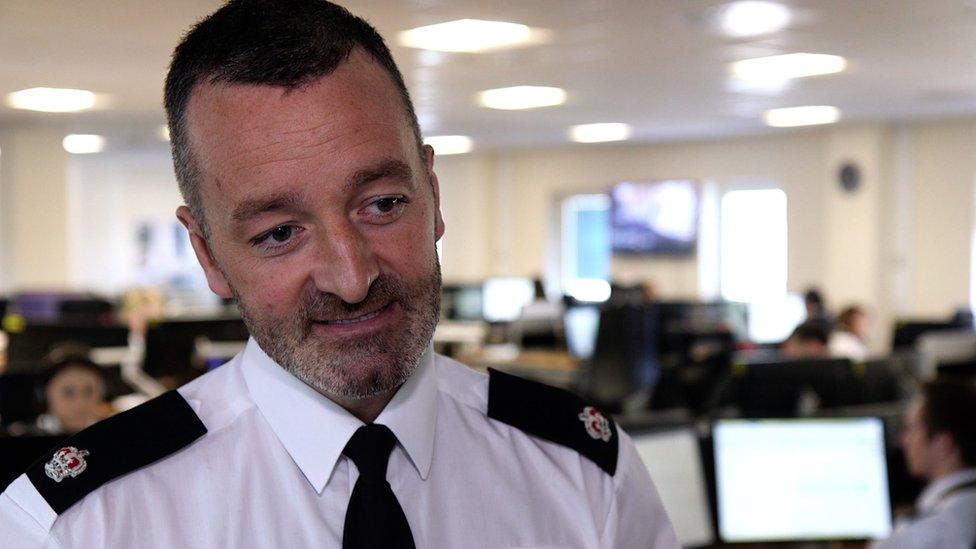
Supt Chris Truscott said officers need to intervene "before things reach crisis point"
Work is being carried out by different agencies, including the police, health and education authorities to see how best to mitigate the effects of ACEs.
"We need to start intervening at an earlier stage before things reach crisis point," said Supt Chris Truscott, of South Wales Police.
"This isn't about turning police officers into social workers, but most problems start in local communities and we need to look at an incident through an ACE lens.
"If there is no food in the cupboards or kids are not dressed, we can see that things are not quite right in a family.
"They may need help and support which we can connect them to."
Police are meeting problems head on at an estate in Maesteg, near Bridgend, which has had problems with anti-social behaviour.
Officers run weekly football and rugby sessions for children which, they say, has helped them to build positive relationships with young people and families.
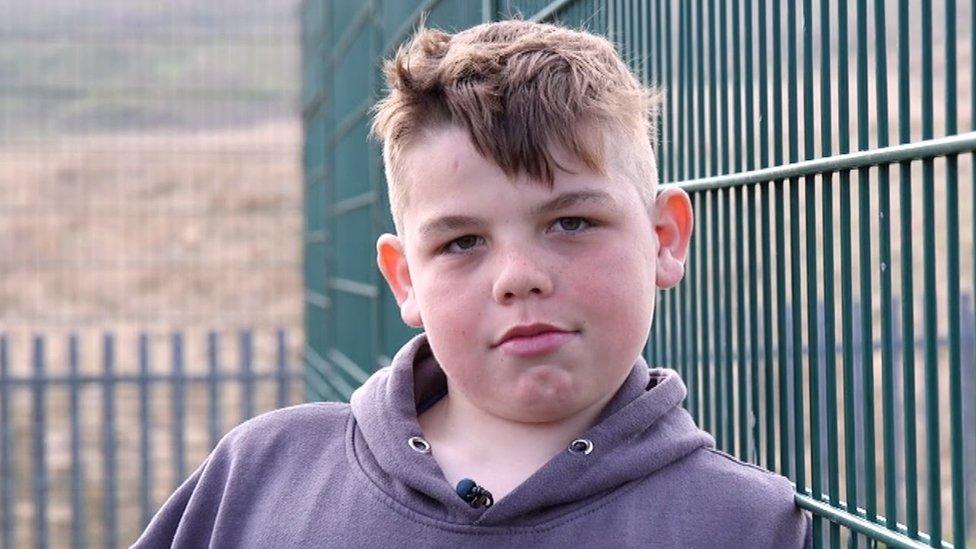
Billy, 12, is part of a group meeting with PCSOs to play rugby
Billy, 12, and his mother, Sarah, have welcomed the support from police community support officers (PCSOs)Police trained to spot childhood trauma
Sarah said: "It's only since the PCSOs have been taking an interest in the children and helping them that they've improved.
"We don't have any trouble up here now and it's lovely.
"They look forward to the police coming up here. They know if they don't behave they don't play on a Sunday."
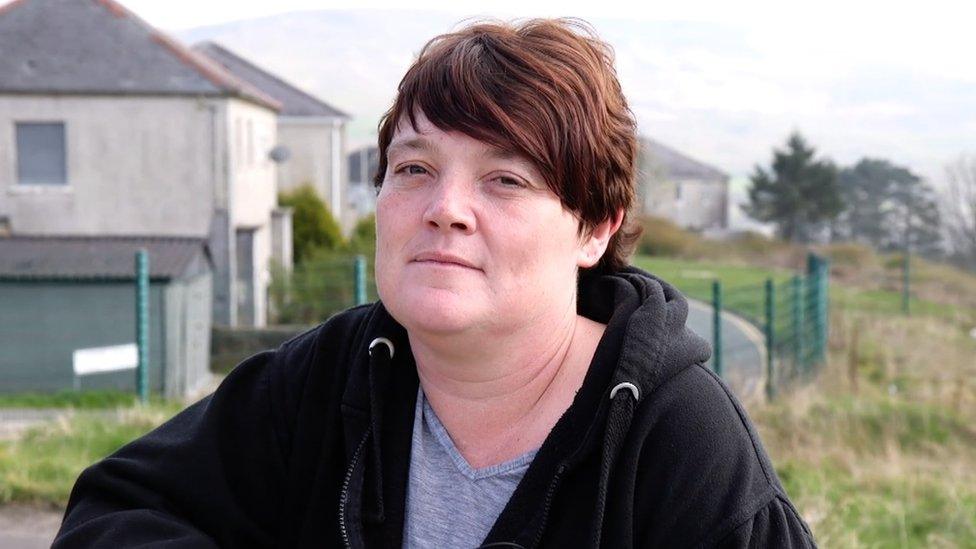
Billy's mum, Sarah, has welcomed the work of Police Community Support Officers
Police trained to spot childhood trauma
Katey Jo Pilling wishes that more had been understood about adverse childhood experiences when she was young.
She said both her parents were addicts, she was neglected and often left with no food to eat.
Her upbringing later affected her own behaviour and led her to self-harm.
She said: "I put myself in dangerous situations when I was older.
"I had an affinity with people with addictions.
"I didn't know how to cope with the hurt I'd had growing up."
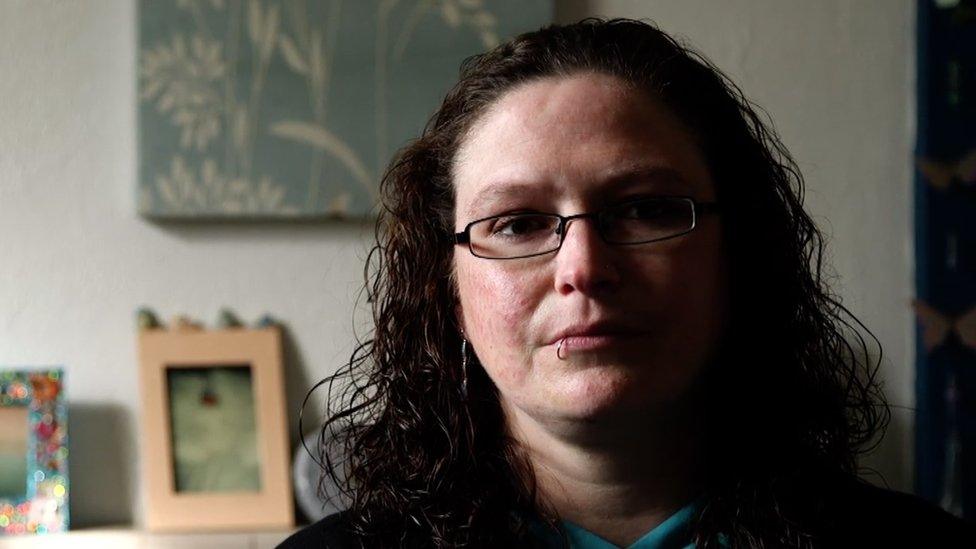
Katey Jo Pilling wishes more had been understood about adverse childhood experiences when she was young
With support, she said she had put her past behind her and has been sharing her experiences with police as part of their training, organised by Barnardo's Cymru, on how to identify ACEs.
She believes that generational cycles of behaviour can be broken.
"If we can give more support to young people who've gone through situations like I did, then perhaps they won't be making the same mistakes that I did, and leading themselves down a path that just repeats what they've seen growing up," she said.
The support project goes further than policing.
Public health, education, housing, social care and charities are joining forces in the Early Action Together Project.
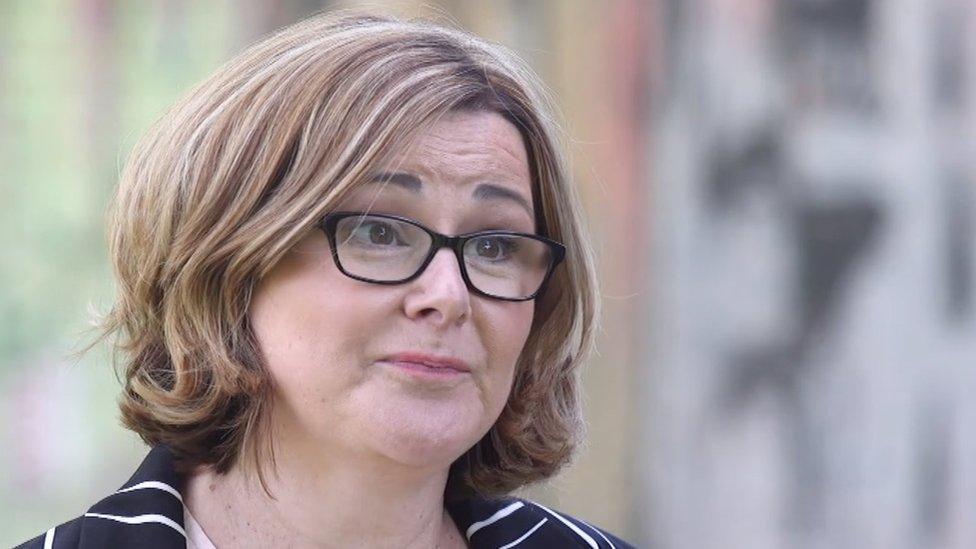
Janine Roderick runs a scheme called the Early Action Together Project
Janine Roderick, who runs the programme, said, in the past, services have often focused on treating symptoms rather than preventing causes.
"Every perpetrator was once a child," she said.
"They would have been that child who had a tough time at home, who was excluded from school when they were five.
"These are the kids that need our help and are telling us there is something wrong and yet we often just treat them with punity.
"But to prevent that escalation we need to be intervening right at the very beginning of that cycle."
The impact of the work carried out in Wales is still being assessed but early evidence suggests that, by taking preventative action, police and others can play a part in supporting vulnerable people before problems escalate.
- Published6 June 2019
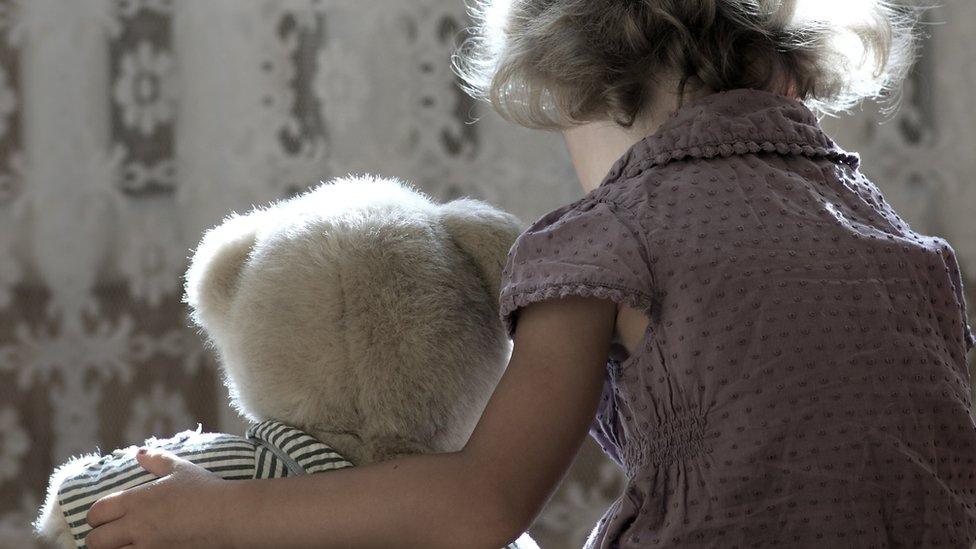
- Published20 April 2019
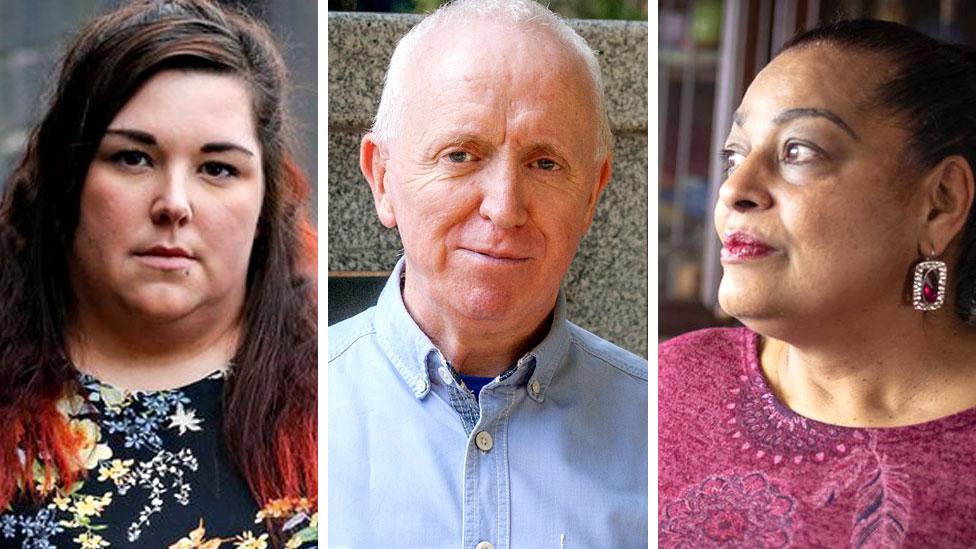
- Published12 July 2017
